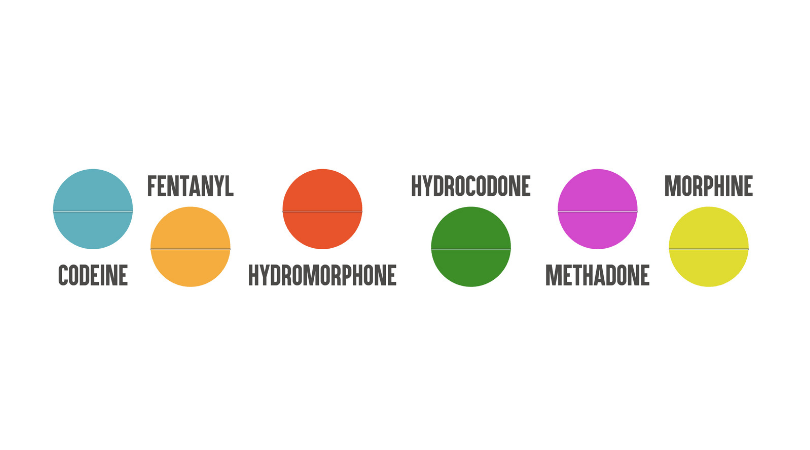
The Opioid Crisis is on the rise
In Britain, the nation’s opioid crisis is on the rise. Last year, the Office for National Statistics reported that fentanyl deaths were up by 29%.
What are Opioids?
Opioids are drugs generally used to help alleviate severe pain and are usually only available with a doctor’s prescription. Opioids work by attaching to receptors in the brain to release signals blocking the perception of pain. There are two main types of opioids. Firstly there are natural opioids derived from the opium poppy such as codeine, oxycodone, morphine sulphate and heroin. The second type is synthetic opioids that are manufactured to simulate similar effects to natural opioids, such as tramadol and fentanyl.
Understanding Pain?
To understand what an opioid crisis is, we must first understand the nature of pain. Nearly everyone can relate to the unpleasant experience of pain. However for our purposes here it’s important to distinguish between acute and chronic pain. Acute pain is usually short lived, lasting less than three months, which can be how long it takes for most to fully recover from serious injuries and illnesses. The causes of acute pain can often be easily identified such as a broken arm, a compacted wisdom tooth, or appendicitis to name but a few. In contrast, chronic pain lasts longer than three months. Chronic pain can result from injury or illness, but the main difference is that chronic pain persists even when the original cause for the pain has resolved. Sometimes the pain is difficult to pinpoint to begin with. Chronic pain is therefore now recognised as a long-term condition in its own right.
Opioids are usually effective when used for acute pain (especially around the time of surgery) partly because with acute pain there is generally a more identifiable target for treatment. The use of opioids for managing chronic pain is a relatively recent phenomenon and started as an attempt to try to reduce the distress of chronic pain. However when used in this capacity the use of opioids can have detrimental side effects if taken regularly for long periods. The problem arises when a tolerance builds up within the patient and over time they become ineffective and can actually increase pain. Additionally opioids can be lethal at high doses.
The Genesis of the Opioid Crisis
The opioid crisis began in the United States more the two decades ago as a well-intentioned initiative by the American Pain Society, when it identified that pain was being inadequately managed. In attempting to address the issue and make available a wider range of treatments to patients suffering with pain, there was a subsequent increase in the prescription of opioids for chronic pain. Queue pharmaceutical companies (Big Pharma), who leaped at the opportunity to increase their market shares. Sales of prescription opioids in the US nearly quadrupled between 1999 and 2014. Despite being only 5% of the world population, Americans now consume 80% of all opioids produced. As a result, what started of a well-intentioned initiative has had devastating consequences that are now being realised, as the US has fallen further and further into the chasm of a full blown opioid crisis. Deaths related to opioid overdosing has more than trebled in the past 20 years.
There are a number of factors driving opioid-related mortality, however the primary reason is due to over-prescribing of opioids by health professionals to treat chronic pain. Research suggests, of those who use opioids intravenously (heroin or similar drugs), 80 per cent began with a prescription opioid. Much of the problem goes hand in hand with the American private health care system, which, has been inextricably tied to Big Pharma influence, prioritising the economics of the drug industry over the welfare of the general public. In recent years there has been growing awareness of the problem and governments at the state and federal level have been increasing restrictions on the prescription of opioids. Unfortunately this has only proved to further exacerbate the problem as many addicted patients have been forced to seek alternative means to obtain them. This is how the rise of powerful and highly dangerous drugs like OxyContin and Fentanyl have been flooding the streets causing even more alarming mortality rates.
A Spreading of the Opioid Crisis
The problem is not solely restricted to the United States. The UK and many European countries have seen a sharp rise in the prescribing of opioids and are either experiencing or about to experience their own opioid crises. Part of the issue in countries with universal health care is that health professionals are overtaxed and over prescribing opioids as a stop gap measure to control pain. As a result, consumption, addiction and overdosing is steadily on the rise.
Given the harms to individuals and societies, it’s fair to ask whether we should be prescribing opioids at all. The answer to this is definitely ‘yes’ – for short-term pain, and with caution. For long-term pain, it’s essential to recognise the risk of developing side effects while not necessarily easing pain. Prescribed appropriately, however, opioids can make life better for people experiencing pain.
Clear guidelines for doctors and screening processes could help reduce the harm caused by opioids. But we must also address the causes of chronic pain, which drives their use. Most importantly, these include deprivation, and the ageing demography of our society. Without investment to address these, the opioid epidemic is set to spread globally.
At Ibiza Calm, we have an expert team of highly professionals available at all times for any number of addictions you or a loved one may be suffering with, so please do not hesitate to call us if you need any help or advice.
(SPAIN) +34 664 443 433
(UK) +44 203 868 5710
Share this information, choose your platform!
Are you an Echoist?
Defining ‘Echoism’ One particular type of co-dependency that has been gaining more attention in psychology circles in recent years is that of the Narcissist and the Echoist. Whilst the widely known trait of ‘narcissism’ is defined by extreme selfishness, with …
Has your drinking increased during quarantine? Five signs that it may have got out of control…
As lockdown measures ease, many people are starting to look at the habits and behaviours they picked up during quarantine. If you have found that your consumption of alcohol has increased, then you are not alone. Whilst numerous studies are …
Ageing and addiction
Figures published by the UK government’s Office for Health Improvement and Disparities (OHID), and the USAs National Institute on Alcohol Abuse and Alcoholism (NIAAA), both seem to indicate that there has been a rise in substance abuse in the elderly. …
Cognitive Dissonance in Addiction & Recovery
Defining cognitive dissonance The social psychologist Leon Festinger first proposed the theory of ‘cognitive dissonance’ in the 1950’s. The theory centres on how people try to reach internal consistency. The term is used to describe the feelings of discomfort that …









